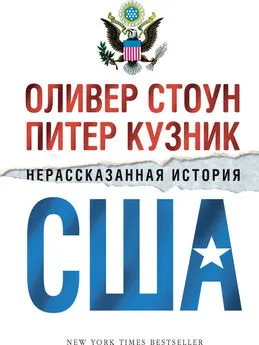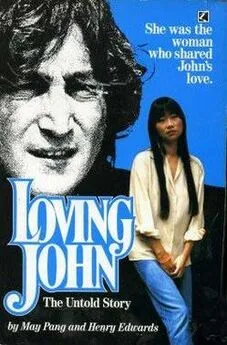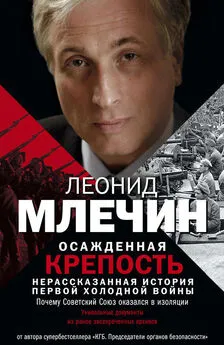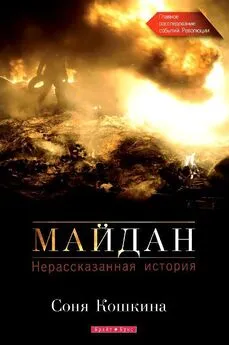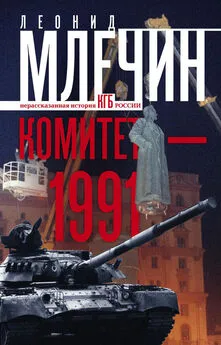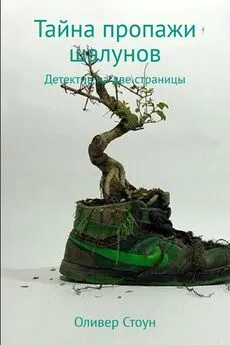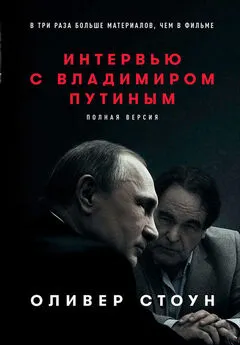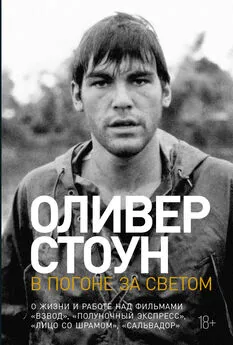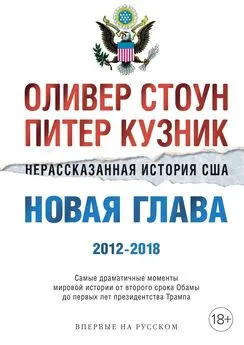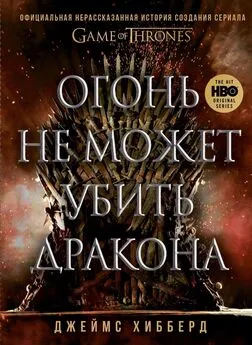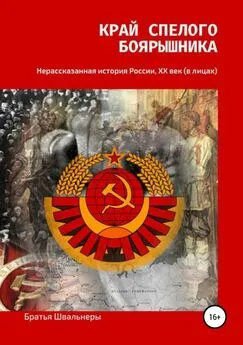Оливер Стоун - Нерассказанная история США
- Название:Нерассказанная история США
- Автор:
- Жанр:
- Издательство:Array Литагент «Аттикус»
- Год:2014
- Город:М.
- ISBN:978-5-389-08903-7
- Рейтинг:
- Избранное:Добавить в избранное
-
Отзывы:
-
Ваша оценка:
Оливер Стоун - Нерассказанная история США краткое содержание
Почему наша страна размещает во всех уголках земного шара свои военные базы, общее количество которых, по некоторым подсчетам, перевалило за тысячу? Почему США тратят на свои вооруженные силы больше денег, чем все остальные страны, вместе взятые? Почему наше государство по-прежнему содержит огромный арсенал ядерного оружия, большая часть которого находится в постоянной боевой готовности, хотя, по сути, ни одна страна сегодня не представляет для нас непосредственной угрозы?
Почему ничтожному меньшинству состоятельных американцев позволено оказывать такое мощное влияние на внутреннюю и внешнюю политику США и СМИ, в то время как широкие народные массы страдают от снижения уровня жизни, а их голос в политике слышен все слабее? Почему американцы вынуждены мириться с постоянным надзором, вмешательством государства в их личные дела, попранием гражданских свобод и утратой права на частную жизнь?
Это повергло бы в ужас отцов-основателей и прежние поколения американцев. Почему в нашей стране именно те, кем движет жадность и узколобый эгоизм, правят теми, кто ратует за такие общественные ценности, как доброта, щедрость, сочувствие к окружающим, общность интересов и верность общенародным идеалам?
И это лишь малая толика тех вопросов, которые мы зададим на страницах этой книги. И хотя мы не надеемся, что сумеем найти ответы на все из них, мы все же постараемся представить исторические факты так, чтобы читатели смогли самостоятельно углубиться в изучение заинтересовавших их вопросов.
В истории Американской империи мало хорошего. Но необходимо честно и открыто говорить о ней, если мы хотим, чтобы Соединенные Штаты когда-нибудь отважились пойти на коренные реформы, которые позволят им играть ведущую роль в продвижении человечества вперед, вместо того чтобы всячески тормозить его прогресс.
Оливер Стоун, Питер Кузник Буктрейлер к этой книге
Нерассказанная история США - читать онлайн бесплатно ознакомительный отрывок
Интервал:
Закладка:
95. Goda Norman J. W. Nazi Collaborators in the United States: What the FBI Knew // U. S. Intelligence and the Nazis / Ed. Richard Breitman, Norman J. W. Goda, Timothy Naftali, and Robert Wolfe. – NY: Cambridge University Press, 2005. – P. 249–253.
96. Weiner Tim. Legacy of Ashes: The History of the CIA. – NY: Doubleday, 2007. – P. 43–45.
97. Wills Gary. Bomb Power: The Modern Presidency and the National Security State. – NY: Penguin, 2010. – P. 87.
98. Simpson Christopher. Blowback: America’s Recruitment of Nazis and Its Effects on the Cold War. – NY: Weidenfeld & Nicholson, 1988). – P. 65.
99. McDougall Walter A. The Heavens and the Earth: A Political History of the Space Age. – Baltimore: John Hopkins University Press, 1997. – P. 88.
100. Leffler Melvyn P. A Preponderance of Power: National Security, the Truman Administration, and the Cold War. – Stanford, CA: Stanford University Press, 1992. – P. 238–239.
101. Avi Shlaim, The Balfour Declaration and Its Consequences // Yet More Adventures with Britannia: Personalities, Politics and Culture in Britain, ed. W. Roger Lewis (London: I. B. Tauris, 2005), 251.
102. Herring George C. From Colony to Superpower: U. S. Foreign Relations Since 1776. – NY: Oxford University Press, 2008. – P. 569.
103. Wawro Geoffrey. Quicksand: America’s Pursuit of Power in the Middle East. – NY: Penguin, 2010. – P. 37–38.
104. Wallace H. The Price of Vision. – P. 607.
105. Gillon Steven M. The American Paradox: A History of the United States Since 1945. – B: Wadsworth, 2012. – P. 25.
106. Yergin Daniel. The Prize: The Epic Quest for Oil, Money, and Power. – NY: Simon & Schuster, 1991. – P. 408.
107. Stivers William. The Incomplete Blockade: Soviet Zone Supply of West Berlin, 1948–1949 // Diplomatic History. – № 2. – 1997. – P. 569–570; Carolyn Eisenberg, The Myth of the Berlin Blockade and the Early Cold War // Ellen Schrecker, ed.
Cold War Triumphalism: The Misuse of History After the Fall of Communism (New York: New Press, 2004), 174–200.
108. Woods Eisenberg Carolyn. Drawing the Line: The American Decision to Divide Germany, 1944–1949. – NY: Cambridge University Press, 1998. – P. 440.
109. Carroll James. House of War: The Pentagon and the Disastrous Rise of American Power. – NY: Houghton Mifflin, 2006. – P. 148.
110. Culver John C., Hyde John. American Dreamer: The Life and Times of Henry A. Wallace. – NY: W. W. Norton, 2000. – P. 456–457.
111. Там же. – P. 466–467.
112. Там же. – P. 464–470.
113. Там же. – P. 502.
114. PPS/23, “Review of Current Trends: U. S. Foreign Policy”, February 24, 1948, Foreign Relations of the United States, 1948, vol. 1, Part 2 (Washington, DC: U. S. Government Printing Office, 1975), 524–525.
115. The Tragedy of China // New York Times. – 1949. – January 24.
116. Duel for Asia // New York Times. – 1949. – December 18.
117. Chennault Sees War in Loss of China // Washington Post. – 1949. – June 26.
118. Truman Margaret. Harry S. Truman. – NY: William Morrow, 1973. – P. 412.
119. Harry Truman, Statement by the President on Announcing the First Atomic Explosion in the U.S.S.R., September 23, 1949 // Public Papers of the Presidents: Harry S. Truman, 1945–1953, Truman Library.
120. Groves of Illusion // Los Angeles Times. – 1946. – February 28.
121. Bird Kai, Sherwin Martin J. American Prometheus: The Triumph and Tragedy of J. Robert Oppenheimer. – NY: Vintage Books, 2005. – P. 417.
122. DeGroot Gerard J. The Bomb: A Life. – Cambridge, MA: Harvard University Press, 2005. – P. 145–147.
123. Public Was Deluded on Bomb, Dewey Says // New York Times. – 1949.—September 24.
124. Lucas Blasts Gutter Politics over Red Atom // Chicago Tribune. – 1949. – October 10.
125. Who Is Winning? // New York Times. – 1949. – October 9.
126. William Laurence. Russ Bomb Heralds New Atom Era – as Predicted // Los Angeles Times. – 1949. – September 25.
127. Lilienthal D. E. The Atomic Energy Years, 1945–1950, vol. 2. – P. 584–585.
128. Forrestal Hopes to Keep His Job // Los Angeles Times. – 1948. – October 10; Pearson Drew. Pearson Replies // Washington Post. – 1949. – May 30.
129. Four Forrestal Suicide Bids, Says Pearson // Los Angeles Times. – 1949. – May 23; Carroll James. House of War: The Pentagon and the Disastrous Rise of American Power. – NY: Houghton Mifflin, 2006. – P. 151.
130. Childs Marquis. Washington Calling: Food for Propaganda // Washington Post. – 1949. – May 5.
1. Leffler Melvyn P. For the Soul of Mankind: The United States, the Soviet Union and the Cold War. – NY: Hill and Wang, 2007. – P. 91.
2. DeGroot Gerard J. The Bomb: A Life. – Cambridge, MA: Harvard University Press, 2005. – P. 153.
3. Herken Gregg. The Winning Weapon: The Atomic Bomb in the Cold War. – NY: Vintage Books, 1982. – P. 279, 293–297.
4. Lilienthal David E. The Atomic Energy Years, 1945–1950, vol. 2: The Journals of David E. Lilienthal / Ed. Helen M. Lilienthal. – NY: Harper & Row, 1964. – P. 582.
5. McMillan Priscilla J. The Ruin of J. Robert Oppenheimer and the Birth of the Modern Arms Race. – NY: Viking, 2005. – P. 24.
6. USAEC General Advisory Committee Report on the ‘Super’, October 30, 1949 // The American Atom: A Documentary History of Nuclear Policies from the Discovery of Fission to the Present, 1939–1984, ed. Robert C. Williams and Philip L. Cantelon (Philadelphia: University of Pennsylvania Press, 1984), 124–127.
7. Bird Kai, Sherwin Martin J. American Prometheus: The Triumph and Tragedy of J. Robert Oppenheimer. – NY: Vintage Books, 2005. – P. 427.
8. Einstein Albert. Einstein on Politics: His Private Thoughts and Public Stands on Nationalism, Zionism, War, Peace, and the Bomb / Ed. David E. Rowe and Robert Schulmann. – Princeton, NJ: Princeton University Press, 2007. – 404.
9. Szilard Leo. Toward a Livable World. / Ed. Helen S. Hawkins, G. Allen Greb, and Gertrud Weiss Szilard. – Cambridge, MA: MIT Press, 1987. – 84 p.
10. William Faulkner, Nobel Prize Banquet Speech, December 10, 1950, http: // www. nobelprize.org/nobel_prizes/literature/laureates/1949/faulkner-speech.html.
11. “NSC 68: United States Objectives and Programs for National Security (April 14, 1950)”, in American Cold War Strategy: Interpreting NSC 68, ed. Ernest R. May (New York: St. Martin’s Press, 1993), 25, 28, 38, 55.
12. Griffith Robert. The Politics of Fear: Joseph R. McCarthy and the Senate. – Lexington: University Press of Kentucky, 1970. – P. 49.
13. Schrecker Ellen. Many Are the Crimes: McCarthyism in America. – Princeton, NJ: Princeton University Press, 1998. – P. 206.
14. Sherry Michael S. In the Shadow of War: The United States Since the 1930s. – New Haven, CT: Yale University Press, 1995. – P. 174.
15. Schrecker, Many Are the Crimes, xiii, 267–268.
16. Mary McCarthy, Naming Names: The Arthur Miller Case // Mary McCarthy, On the Contrary (New York: Farrar, Straus, and Cudahy, 1961), 154.
17. I. F. Stone, Must Americans Become Informers? // I. F. Stone, The Truman Era (1953; reprint, New York: Random House, 1972), 99.
18. Richard H. Pells, The Liberal Mind in a Conservative Age: American Intellectuals in the 1940s and 1950s, 2nd ed. (Middletown, CT: Wesleyan University Press, 1989), 322.
19. Ceplair Larry, Englund Steven. The Inquisition in Hollywood: Politics in the Film Community, 1930–1960. – NY: Anchor Press / Doubleday, 1980. – P. 386–388, 403–407, 418–422.
20. Schrecker Ellen. Many Are the Crimes: McCarthyism in America. – Princeton, NJ: Princeton University Press, 1998. – P. 369–370.
21. Vincent Joseph Intondi, “From Harlem to Hiroshima: African Americans and the Bomb, 1945–1968”, PhD dissertation, American University, 2009.
22. Johnson David K. The Lavender Scare: The Cold War Persecution of Gays and Lesbians in the Federal Government. – C: University of Chicago Press, 2004. – P. 166–168.
23. Schrecker Ellen. Many Are the Crimes: McCarthyism in America. – Princeton, NJ: Princeton University Press, 1998. – P. 208, 212, 216, 227.
24. Leffler Melvyn P. A Preponderance of Power: National Security, the Truman Administration, and the Cold War. – Stanford, CA: Stanford University Press, 1992. – P. 365.
25. War in Korea // New York Times. – 1960. – June 26.
26. Halberstam David. The Coldest Winter: America and the Korean War. – NY: Hyperion, 2007. – P. 2.
27. Lloyd C. Gardner, The Dulles Years: 1953–1959 // From Colony to Empire: Essays on the History of American Foreign Relations, ed. William Appleman Williams (New York: John Wiley & Sons, 1972), 375–376.
28. Ibid., 371–372.
29. Halberstam David. The Coldest Winter: America and the Korean War. – NY: Hyperion, 2007. – P. 92–93.
30. Deborah Welch Larson, Bandwagon Images in American Foreign Policy: Myth or Reality? // Dominoes and Bandwagons, ed. Robert Jervis and Jack Snyder (New York: Oxford University Press, 1991), 96.
31. Truman Lauds ‘Brilliant’ Victory by MacArthur // Los Angeles Times. – 1950. – September 30.
32. Beisner Robert L. Dean Acheson: A Life in the Cold War. – NY: Oxford University Press, 2006. – P. 404.
33. Zubok Vladislav M. A Failed Empire: The Soviet Union in the Cold War from Stalin to Gorbachev. – Chapel Hill: University of North Carolina Press, 2007. – P. 78.
34. Truman Harry S. Memoirs: Years of Trial and Hope. – NY: Doubleday, 1956. – P. 375.
35. Halberstam David. The Coldest Winter: America and the Korean War. – NY: Hyperion, 2007. – P. 14–16, 386, 390–391.
36. Statement by Gen. MacArthur // New York Times. – 1950. – November 29.
37. Cumings Bruce. Korea’s Place in the Sun. – NY: W. W. Norton, 1997. – P. 272; Gerson Joseph. Empire and the Bomb: How the U. S. Uses Nuclear Weapons to Dominate the World. – L: Pluto Press, 2007. – P. 288; Pearson Drew. Korea Briefing Startled British // Washington Post. – 1950. – December 8.
38. Brinkley Alan. The Publisher: Henry Luce and His American Century. – NY: Alfred A. Knopf, 2010. – P. 365.
39. Speeches by Warren Austin of U.S. and Wu Hsiu-chuan of Red China in Security Council // New York Times. – 1950. – November 29.
40. Veysey Arthur. Attlee to Tell Truman: Don’t Use Atom Bomb // Chicago Tribune. – 1950. – December 2.
41. Cumings Bruce. Korea’s Place in the Sun. – NY: W. W. Norton, 1997. – P. 81; Cumings Bruce. The Origins of the Korean War, vol. 2: The Roaring of the Cataract, 1947–1950. – Princeton, NJ: Princeton University Press, 1990. – P. 749–750.
42. Hunt Michael H. Crises in U. S. Foreign Policy. – New Haven, CT: Yale University Press, 1996. – P. 217–218.
43. Rivers Urges A-Bomb Against Reds // Miami Daily News. – 1950. – November 28.
44. Congressmen Split on Use of Atom Bomb // Chicago Tribune. – 1950. – December 1.
45. Miller Richard Lee. Under the Cloud: The Decades of Nuclear Testing. – The Woodlands, TX: Two Sixty Press, 1991. – P. 101.
46. Rosenthal A. M. U. N. Circles Wary on Atom Bomb Use // New York Times. – 1950. – December 1.
47. Bruce. The Origins of the Korean War, vol. 2: The Roaring of the Cataract, 19471950. – Princeton, NJ: Princeton University Press, 1990. – P. 750.
Читать дальшеИнтервал:
Закладка:
